What Hath Man Wrought?
Communication technology in the early 21st century
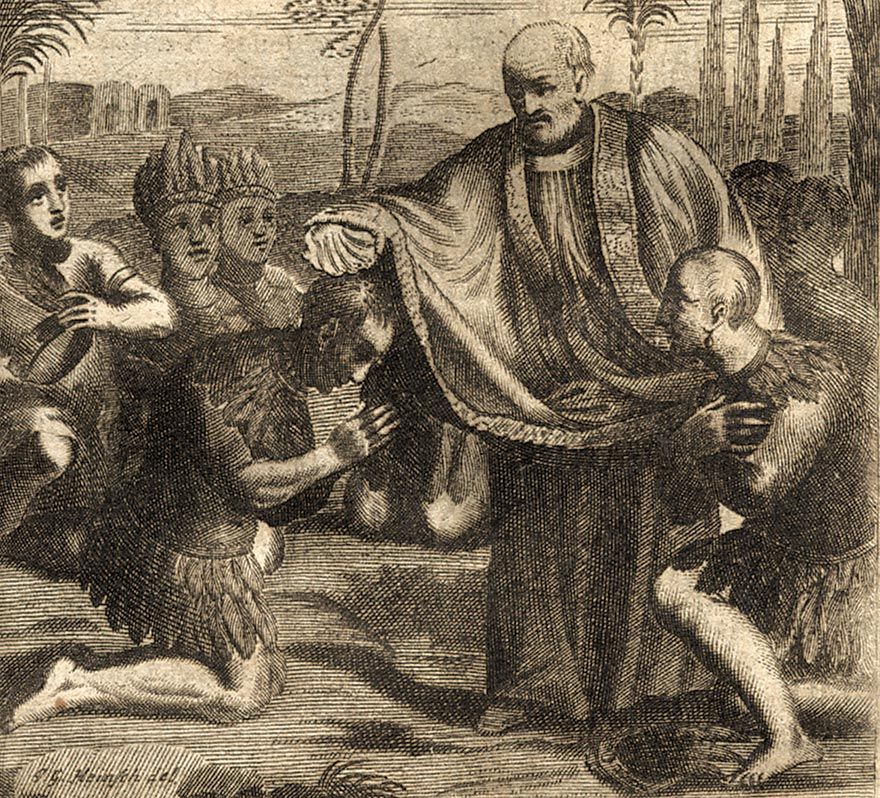
(This week is the 500th anniversary of the fall of the Aztecs due to the arrival of the Spanish and their allies. This is a tech-focused essay on what happens when massive changes in technology change our entire existence)
The young men filtered slowly into the large room. They were special, selected by years of training and breeding. For the past weeks, they had heard stories of the spectacle about to unfold. The strangers, the important people brought new ways and wonderful things. Many had spoken of it. This was the time they had anticipated. After tonight, after the magic, they wouldn't be the same. They were eager with anticipation. They would be different. Everything would be different. They would even think different.

Five hundred years ago, the Spanish showed up in the New World. It was the most dramatic and catastrophic change our species has experienced in all of written history. In terms of number of people and cultures affected, the discovery of the New World ranks only next to the last Ice Age, or perhaps the Bronze Age Collapse.
You can't always get what you wanted
Nothing worked out like anybody thought it would.
Out of the many stupendous changes, including plague, pestilence, famine, and mass migration, the most powerful change was the magic that the Spanish (and later European settlers) brought with them. The wizards brought it.
What magic, you might ask? It was almost beyond description. It was a device. Special people possessed it and were trained to use it. It could be used everywhere. Somehow it mysteriously allowed the thinking, words, and thoughts of other people in far off times and places to visit, no matter where you were. Technically, it's open for anybody to participate, any reasonably-bright person could be trained in the magic. In reality, the way it was actually done, it was magic made by the elite, consumed by the masses.
It was reading and writing.

It's quite common today to see the Spanish as conquerors, as cruel overlords bent on raping the land and subjecting the people, but that's not how they saw themselves. Everybody is a hero in their own story, and the glory of the Spanish story was bringing their morals and knowledge to poor creatures who obviously desperately needed it.
In their own minds, the Spanish were not conquerors. They were religious people and explorers. There was simply a lot of gold out there, and people who needed help.
Almost overnight, Native Americans were presented with new technologies, new ways of thinking, many of which they couldn't have imagined before. Communication technology, however, is subtly different from the others, oddly explosive. It doesn't sit around, waiting to be used as a tool. When we begin, it is our tool. Later, we become its tool. Radically new communication technology is a roller coaster ride into the abyss.
As opposed to what you might hear, the Spanish didn't directly come in and destroy. Instead, they came in and helped some groups of people fight other groups of people. Turns out, groups of people like fighting one another. We're like that. The Spanish knew this. They knew the patterns. Their strategy was to simply keep being on the winning side. This was quite easy when you have a broader perspective. Heads I win, tails you lose. Native Americans were not stupid or even primitive thinkers, they were clever and smart, but they were completely unaware of the types of technologies and tactics the Spanish were prepared to use. How could they know? They didn't have the magic. They couldn't see the patterns. They didn't have a way to create and share realities over the centuries and across cultures. They were cognitively blind. The Spanish were there to help them transition into a more modern age, to help them see. Tens of millions dead. Entire cities disappeared without a trace.
Transitions are always difficult.
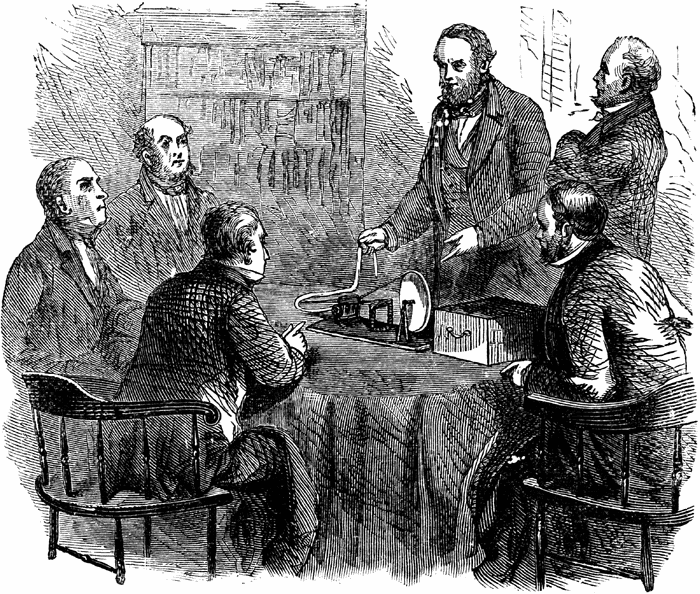
The only way out is through
Move forward 300 years. It's May 24th, 1844. Congress gathers nervously around Samuel Morse. He desperately wants the government to move, to push forward his new communication technology he's created, the telegraph. Instantaneous communication like this could change the world. It could open the eyes and ears of millions to concepts they've never experienced before. It could help many people see. Two months ago he had talked Congress into appropriating $30,000. Now was the time to show that the money was worth it.
Morse had spent 12 years struggling with his new idea. He had faith that it would change the world, but the journey was difficult. The year it all began, he told a visiting friend, "This is my first meal for twenty-four hours. Strother, don't be an artist. It means beggary. Your life depends upon people who know nothing of your art and care nothing for you. A house dog lives better, and the very sensitiveness that stimulates an artist to work keeps him alive to suffering."
Did you know Morse was primarily an artist? Perhaps you thought of him just as an inventor, the man who conquered electricity in service of modern communication. In his own mind Morse was not an inventor, a conqueror. He was a religious person and intellectual explorer. He was a painter, an artist. There was simply a lot of gold out there, and people who needed help.
Finally his long journey to help mankind paid off. The first telegraph message, sent magically in a flash from Washington DC to Baltimore, Maryland, was "What hath God Wrought?" It was from the Bible. The roller coaster ride begins again. Please fasten your seat belts, keep your hands inside the cars at all times.
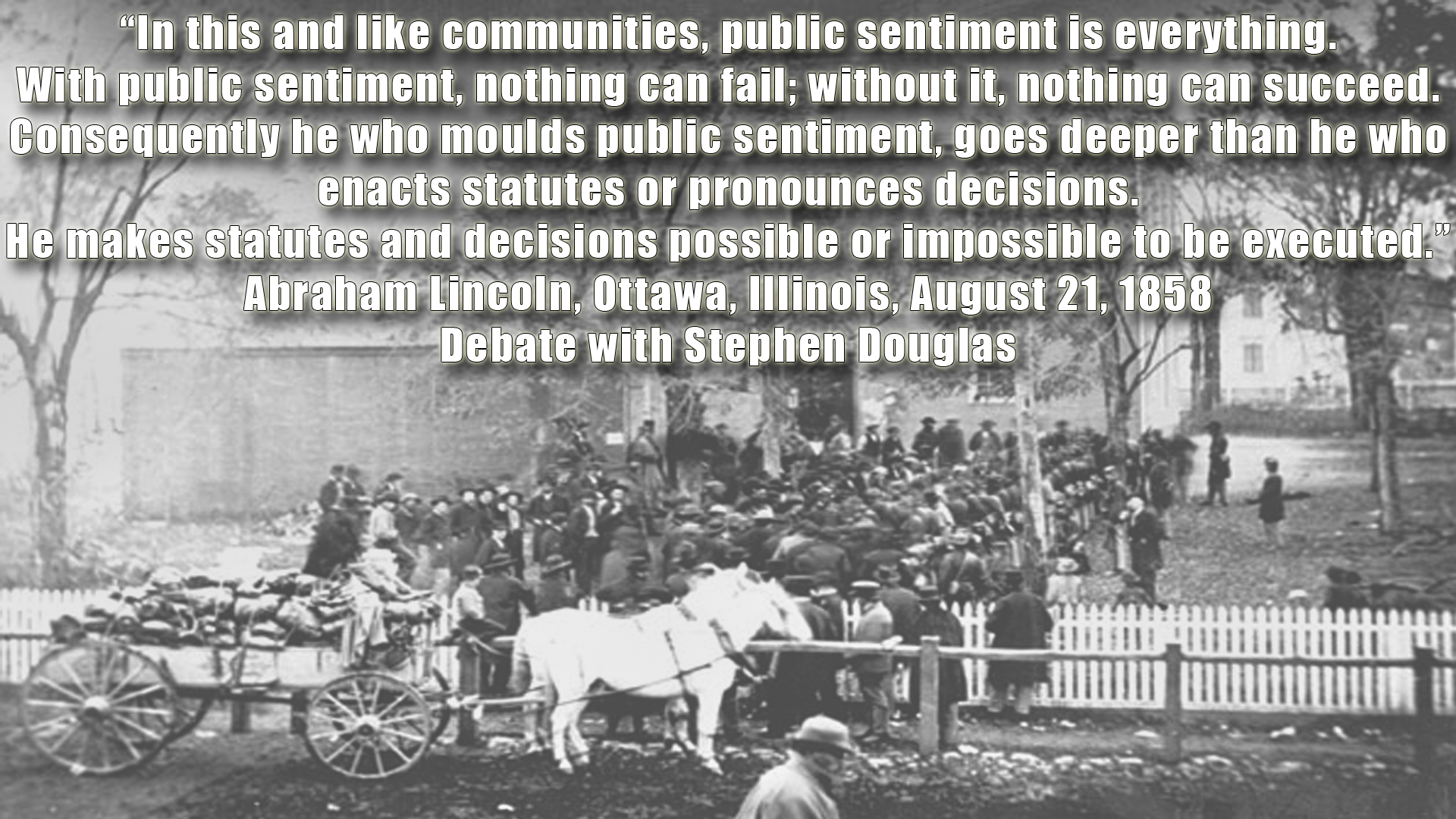
When Rome fell, communication technology shattered and scattered like quicksilver tossed across a mausoleum's floor. Writing went from a superpower that almost anybody could have and that would work almost anywhere to something much more isolated and idiosyncratic. Communication stopped becoming a tool for sharing tool-making knowledge, helping people reach their own goals. Instead, it became a information superhighway for metaphysics, for persuading people emotionally, for telling them what to do and think. Monasteries replaced marketplaces. Gold left the traders and went to the temples.
It was the constant, peaceful splitting and rejoining of wildly-different and perhaps explosive groups of people who shared a tiny interest for a short, finite amount of time. How much for this necklace? What is truth? Beauty? Should we riot or not? It was under these conditions, and only under them, that brought Prometheus's Fire. But we didn't know that. Instead of seeing the churning, constantly chaotic creative destruction, we only saw universals, categories and labels. We're good at inventing patterns with spotty knowledge. We suck at real patterns, a bit at a time, over centuries.
The printing press, the spread of people, the explosion of commerce, and the emergence of universities, evolved communication technology to its first Golden Age, The Enlightenment. Then came newspapers, railroads, the telegraph, and steam engines. The picture swung back towards practicality, at least at first.
Communication technology kept evolving anyway. Morse was correct. The investment was well worth it. The telegraph changed everything. At first the government moved the technology. Soon, however, the technology moved the government.
As the devout artist and portrait painter traveled Europe trying to get a patent, Morse ran into Louis Daguerre, another painter and inventor. You may have heard of Daguerre's invention: they ended up calling it "photography."

The telegram was replaced by the radio show, then television show, then the internet, then social media. The trend has been toward more standardization and centralization, more emotion, entertainment, and persuasion. You want to build a deck? There's a quick five-minute video on YouTube to watch. Any longer and people wouldn't watch it. You want to become a respected, popular, moral leader that people look up to? There are thousands of social media influencers with daily content they provide to help and show you. We can't get enough of it. A thousand romance novels sell for every calculus textbook. A thousand people vent their opinion online for every one slowly taking the time to learn and slowly inspect their own beliefs. We buy and sell respect and morality, we don't practice it. It's a product, like soap. Patterns.
Transitions are difficult.
Move forward thirty years. The city of New York was hosting a massive celebration. Morse, then in his 80s, was there. He was to send his last telegraph message in front of the adoring crowd. In only 27 years, telegraph wires had connected all of us. As his wrinkled and wizened hands shakily keyed the message, it instantly went anywhere, everywhere. The message was simply his name, Samuel F.B. Morse. But he needed no introduction, even to faraway people. Everybody knew him. After he finished, the thousands of people present gave him a standing ovation for several minutes. The old man was visibly overwhelemed with emotion. "We are your children!" they yelled. "We are the children of the telegraph!"
What hath man wrought?
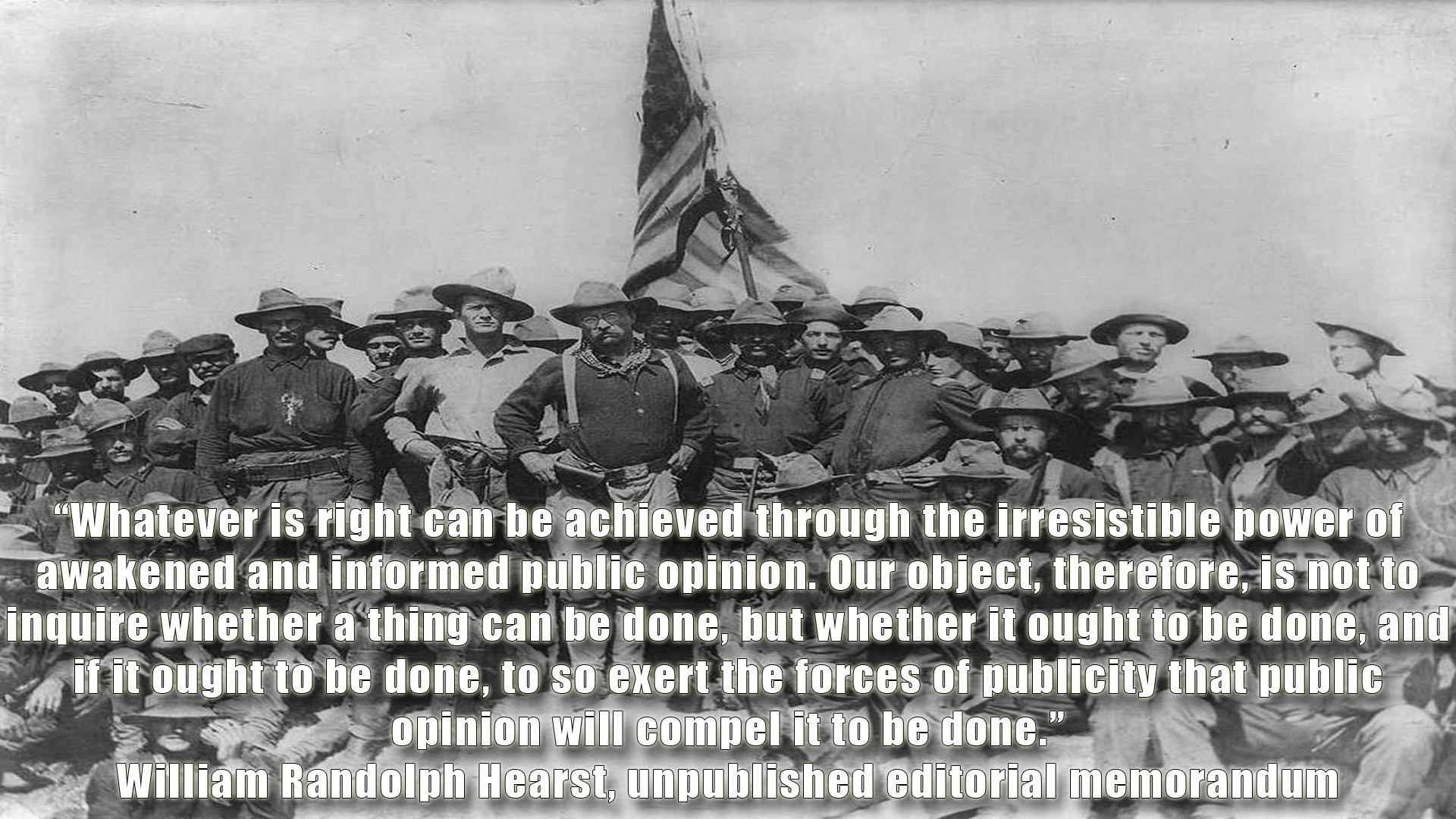
Move forward just another 30 years. It wasn't just dots and dashes, it was moving pictures and sound.
When the first moving pictures came out, audiences had to be reassured not to be frightened.
Meet new boss, same as old boss
Move forward yet again. Here we are, here we live, 150 years after the telegraph, 90 years after motion pictures, 30 years after the internet. We've centralized, standardized, and improved communication technology to the point that anybody, anywhere on the planet can theoretically speak to anybody else. Hell, any one person could even speak to almost all of us. Instantly. Nothing like this has ever existed. New coaster! Buckle up!
Each of us should be aware of more information and know more about our universe than we ever have, yet we find ourselves in a curious state of denial. We live in the most centralized, standardized, controlled, feelings-based communication milieu ever imagined, yet for many the mantra continues to be that nothing much has changed. To them it's all the same as it ever was. Nothing to see here, folks.
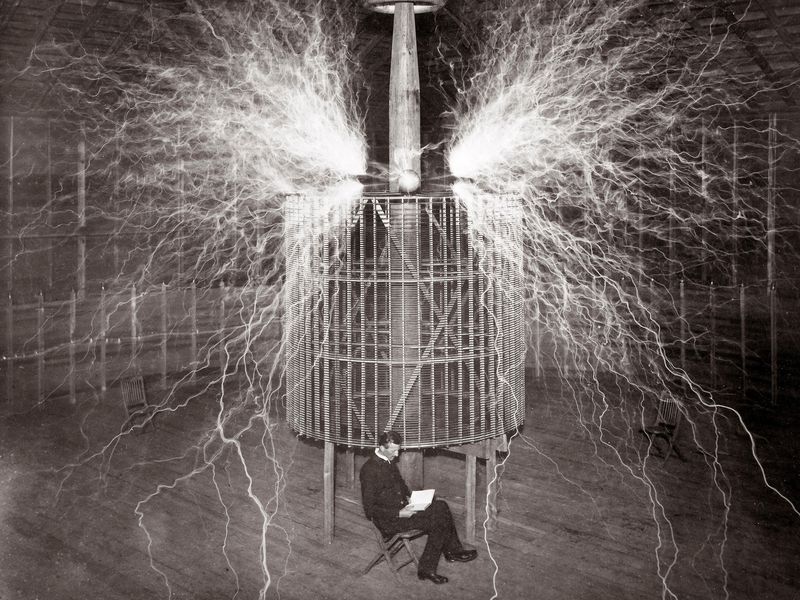
Yesterday I read an essay, "Big Tech are supposed to be the plumbers, not patricians of internet discourse", the gist of it is that an email provider doesn't like the content of somebody's emails, so now they can't use that provider anymore.
This has all become sadly regular, as is the common reply: "[These guys are] a private company determining how and who it conducts business with. Being a 'patrician' of your own property is completely fine and in fact a basic right, and if you don't like [their] content policies, go to a competitor."
This is an awesome reply. There's only one problem with that idea, you can't. ?Yes, email is an international standard built on top of TCP-IP. In theory, anybody can set up their own email server and start sending email on their own tomorrow. I know a very small number of people who still are doing this. In practice, however, it doesn't work that way. It hasn't for a long time.
Nothing worked out like anybody thought it would.
Take email. Email has been so overrun with spammers that setting up and running email is a full-time job, perhaps requiring many experts. There are only a small number of major companies that provide email service. You either use them, go without email, or instantly become an expert in something that has nothing to do with your main business. If you'll do that, you'll need to stay on top of that protocol (and all of the associated working agreements and standards committees) as it changes. It's an impossible choice, and this makes the control of email an oligarchy in everything but name: if they don't like you, you don't email. End of story. Choice and private property doesn't come into the discussion. I wish it did.

The same goes for many of these "open" protocols. Want to publish a web page? Great! It's an open standard for anybody to use. But good luck doing that if folks don't like you. You can't get server space, you can't get DNS entries, you can't even get traffic routed. Technically, it's open for anybody to participate, any reasonably-bright person could be trained in the magic. It's all open, it's all available to anybody, but there's much critical detail that's missing in that statement. In the final analysis, it's based on many factors, like whether or not you are liked by the correct people and the content you create is noticed and condoned by them (and their algorithms). Mostly it is an arcane, byzantine discussion. The wizards brought it. It is almost beyond description.
This is new. This is a new ride. We haven't done centralization and standardization worldwide like this ever before. And most of what we talk about, let's face it, is cat pictures and how we feel about silly things. The overwhelming majority of the web isn't being used to advance nuclear physics or teach poor people science, it's porn, games, and people over-sharing personal trivialities with one another. The dynamic, sometimes scary constant small issue mixing and remingling has been replaced by a universal corporate miasma of mediocrity. We swim in it.
Big Tech do not see themselves as conquerors. We are all heroes in our own stories. They see themselves as moral people and explorers. There is simply a lot of gold out there, and people who need help.

The young men filtered slowly into the large room. They were special, selected by years of training and breeding. For the past weeks, they had heard stories of the spectacle about to unfold. The strangers, the important people brought new ways and wonderful things. Many had spoken of it. This was the time they had anticipated. After tonight, after the magic, they wouldn't be the same. They were eager with anticipation. They would be different. Everything would be different. They would even think different.
Transitions are always difficult.



Comments ()